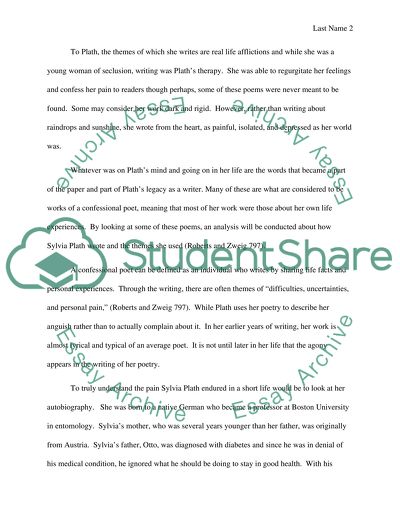Cite this document
(“Critical analysis of Sylvia Plath as a confessional poet Research Paper”, n.d.)
Retrieved from https://studentshare.org/literature/1672216-critical-analysis-of-sylvia-plath-as-a-confessional-poet
Retrieved from https://studentshare.org/literature/1672216-critical-analysis-of-sylvia-plath-as-a-confessional-poet
(Critical Analysis of Sylvia Plath As a Confessional Poet Research Paper)
https://studentshare.org/literature/1672216-critical-analysis-of-sylvia-plath-as-a-confessional-poet.
https://studentshare.org/literature/1672216-critical-analysis-of-sylvia-plath-as-a-confessional-poet.
“Critical Analysis of Sylvia Plath As a Confessional Poet Research Paper”, n.d. https://studentshare.org/literature/1672216-critical-analysis-of-sylvia-plath-as-a-confessional-poet.


